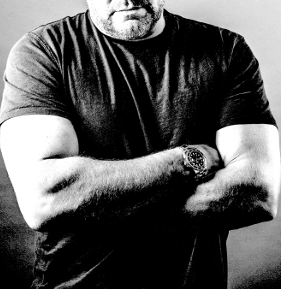Anti-union pre-election gauntlet laid
 The union-busting starts today, with Parliament recalled to debate a set of bills aimed squarely at damaging the biggest workers’ organisations.
The union-busting starts today, with Parliament recalled to debate a set of bills aimed squarely at damaging the biggest workers’ organisations.
Parliament will consider a number of bills in the coming days, which variously seek to reinstate the ABCC building watchdog, collapse the Road Safety Remuneration Tribunal (RSRT), and amend the Registered Organisations Act to tighten union governance.
All three bills take away powers and provisions for the major unions, and so are considered utterly unpalatable to the Labor party.
Prime Minister Malcolm Turnbull has indicated that the rejection of one (or all) of these bills would be enough to trigger a double-dossilutions election, so most are selling this week’s politics as the start of a seven week election run.
“If they are not passed, the bills that will be the subject of the double dissolution will be the ABCC bills and the registered organisations bill,” Turnbull said in late March, before the anti-RSRT bill had even been raised.
Labor says it will “deal with” the bills, but it is exceedingly unlikely that they will be dealt with by passing.
“I want to make clear what Labor has decided: we will deal with these bills. We won’t be delaying, we will deal with these bills,” Senator Penny Wong said last week.
“If Malcolm Turnbull wants a double-dissolution election, we’re ready for an election. This election will be about jobs, health and education.”
The Government does appears to have the numbers to abolish the Road Safety Remuneration Tribunal (RSRT), with crossbenchers hinting they will vote for the changes.
The LNP only recently took up the RSRT’s ruling on new pay rates for truck drivers as a good point of division.
The Government appeared to have no opinion on the progress of the independent tribunal’s report for the two years that it was working on it, leading some to suggest it has only now come to the fore because of its political usefulness.
The Transport Workers' Union says non-union owner-driver contractors need to charge rates similar to those of big transport companies to stay safe and competitive on the roads.
But there are opponents to the enforcement of higher rates for smaller operators too. They say it removes the freedom that allows owner-drivers to set their own schedules and offer cheap deals on return runs.
Some of the strongest messaging has been about the re-introduction of the Australian Building and Construction Commission (ABCC).
Employment Minister Michaelia Cash says the number of industrial disputes and days lost to them fell while the ABCC was in place, and increased when Labor abolished it.
But even the two government-commissioned independent reports that have been used as the basis for the ABCC bill are not so sure.
The reports on construction industry concluded it was “reasonable” and “likely” to conclude that the ABCC could have reduced industrial dispute rates.
But the authors were keen to state that the dispute rates are highly variable, and the differences in the amount of disputes could be due to one-off strikes and enterprise bargaining cycles, not legislation.
And finally, the potential election trigger that has been given the leats attention in recent days are the amendments to the Registered Organisations Act.
The Government wants to introduce a Registered Organisations Commission; an idea that has already been rejected by the Senate twice.
The amendments include a number of measures – recommendations from the Royal Commission into Trade Union Governance and Corruption – tighten union governance.
LNP figures say the new commission is needed to stop unions from paying the fines when their officials break the law.
Liberal backbencher Dan Tehan says unions treat the penalties as a “badge of honour”.
The royal commission also recommended a new law banning union officials who break the law from holding office.
Mr Tehan has called for bi-partisan support.
With Labor expected to oppose all three of the union-busting bill as they are raised in the next three weeks, it will become a battle once again to win over the eight crossbench senators.
Lazarus, Lambie, Leyonhjelm, Day, Wang, Muir, Madigan and Xenophon – these may be the most powerful names in the country.







 Print
Print